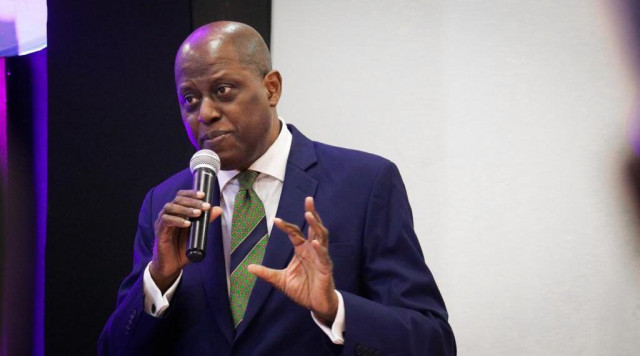Nigeria's net foreign exchange reserves (NFER) stood at $23.11 billion at the conclusion of the previous year, as reported by the Central Bank of Nigeria (CBN).
This amount is $15.6 billion lower than the current gross reserves, which amount to $38.7 billion, having slightly declined from last year's close of $40.2 billion.
There may be a significant difference between its real-term value and the figure from three months ago. Nevertheless, the pegging of the currency has alleviated concerns regarding the possibility of Nigeria experiencing negative NFER amidst the ongoing FX crisis.
The CBN has also indicated that the current net value is the highest it has been in over three years.
The apex bank announced that this achievement as of the end of 2024 signifies a noteworthy enhancement in the country's external liquidity, a decrease in short-term liabilities, and a resurgence of investor confidence.
According to the CBN, this figure represents a considerable increase from $3.99 billion at the end of 2023, $8.19 billion in 2022, and $14.59 billion in 2021. NFER takes into consideration gross reserves while accounting for near-term liabilities like FX swaps and forward contracts.
It is viewed as a more reliable measure of the foreign exchange buffers available to address immediate external obligations. A few years back, there were concerns that Nigeria's net FX reserves might have dipped into negative figures, and at that time the CBN refrained from disclosing the precise amount.
During the World Bank/International Monetary Fund (IMF) general meeting last year in Washington DC, the CBN's governor, Yemi Cardoso, assured that his team would begin to reveal the NFER as part of their pledge to transparency and comprehensive disclosure starting from the last quarter.
Gross external reserves also rose to $40.19 billion, as opposed to $33.22 billion at the closure of 2023, according to the bank. They noted that the accumulation of reserves is a result of strategic initiatives, including a targeted and significant reduction in short-term foreign exchange liabilities, primarily swaps and forward obligations.
The bank further mentioned that this improvement was driven by policy measures aimed at reinforcing confidence in the FX market and enhancing reserve buffers, together with recently increased foreign exchange inflows, especially from non-oil sources.
It was also revealed that this outcome results in a more robust and transparent reserves position that better equips Nigeria to handle external shocks. The expansion occurred concurrently as the CBN persisted in decreasing short-term liabilities, thus bolstering the overall quality of the reserve position.
In discussing this achievement, CBN governor Yemi Cardoso stated: "This enhancement in our net reserves is not a coincidence; it is the result of intentional policy decisions directed at rebuilding confidence, mitigating vulnerabilities, and establishing a foundation for long-term stability. We remain dedicated to maintaining this progress through transparency, discipline, and market-oriented reforms."
The CBN suggested that reserves would keep strengthening in 2025. While the first-quarter figures exhibited certain seasonal and transitional variations, such as significant interest payments on foreign-denominated debt, the underlying fundamentals remain sound, and reserves are projected to continue improving into the second quarter of this year.
Moving forward, the CBN anticipates a gradual rise in reserves, supported by enhanced oil production levels and an improved export growth environment expected to elevate non-oil FX earnings and diversify external inflows.
"The CBN remains committed to prudent reserve management, transparent reporting, and macroeconomic policies that foster a stable exchange rate, attract investment, and cultivate long-term resilience," it concluded.




















